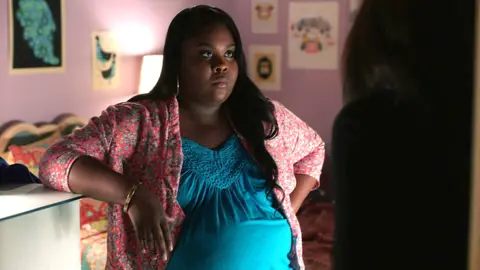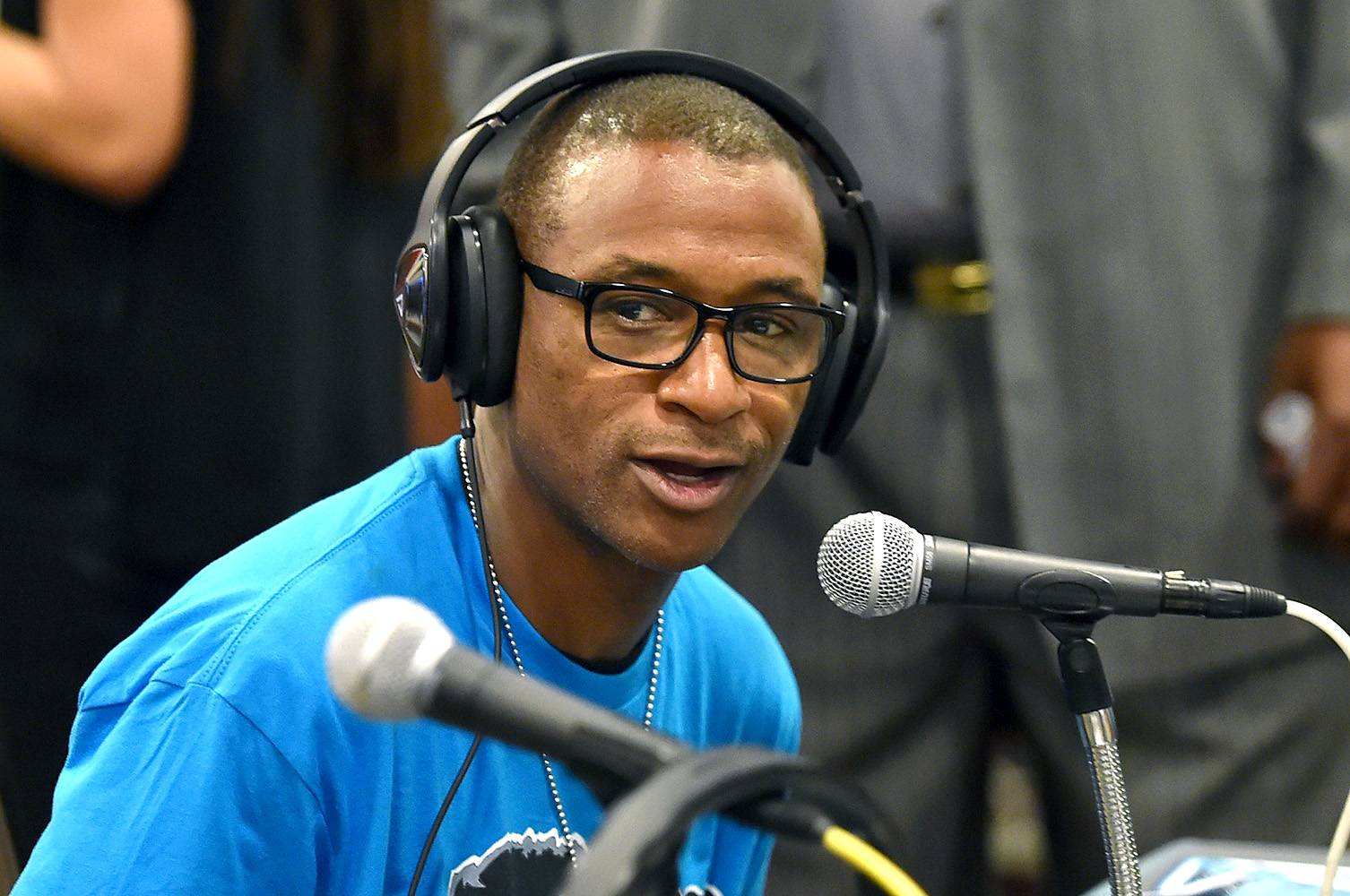Birth Control As a Way to Take Control

Birth control. Such powerful words. What do those two words really mean to you? Why do they carry so much baggage for some? Niecy and Mary Jane's face-off about Niecy's determination to get her tubes tied exposes so much more about both of them than just how they feel about contraception.
Why is it that something so important, so central to the lives of women, men and children has become an almost taboo subject? It's something 99% of adults use, but something that feels awkward, or even controversial, to discuss. But let’s put aside the discomfort for a minute and really think about the meaning of those two powerful words rather than the mechanics of it all. Niecy is so set on getting her tubes tied because she is finally taking charge of her life and thinking about her future. She is determined to be the best mom she can be to her two children, and that means not having any more children any time soon – or ever. This is Niecy’s way of coming out of the fog and finally saying, in her own way, that she is an adult, that she’s going to start making things happen in her life instead of having things happen to her (and letting everyone else pay for it).
But Mary Jane has a point: Why make it permanent when she's so young? There are so many great birth control options right now, like the IUD or the implant, which are two of the most high-impact and low-maintenance methods out there. IUDs can prevent pregnancy for up to five years and are safe and effective. The shot, the ring and the patch can prevent pregnancy for months or weeks at a time. Of course there's the pill, too. But Niecy says she's tried it all and has decided that none of those are for her. Which is, of course, her choice. But Mary Jane wants Niecy to slow down, knowing that if she finds a method that fits her life, she will be more motivated to stick with it.
Having a say in timing and spacing our pregnancies is one of the most fundamental ways that women can have a say in how their lives unfold. In fact, it’s now considered a universal human right.
So is Mary Jane getting in Niecy's way, still trying to exert some control even as Niecy is trying to finally take control of her own life? Or is Mary Jane truly trying to help Niecy see past the moment, think about the long future ahead and keep her options open?
It’s always complicated to talk to someone about their choices when it comes to pregnancy and birth control. Niecy herself says she didn't intend to get pregnant as a teen, but her children are not mistakes. Is there any way for Mary Jane to have this conversation with Niecy without sounding like it’s the children who are the “poor choices?” Once there’s a pregnancy, all roads ahead are hard and the range of decisions is complicated. That’s why it’s so important to explore all the birth control options out there, find out how they work and figure out what works for you. It's a way to look out for yourself now and plan for what you want later.
Niecy and Mary Jane are locked in conflict about much more than Niecy’s birth control. At the core, though, they are in agreement: Being a parent is one of the most rewarding, demanding, significant things anyone can do, no matter how ready you feel or how it came about. To have the option to say you’re not ready for parenthood now (as Mary Jane has so far) or that you might be ready for it later (as Mary Jane has, and wants Niecy to consider) is at the heart of what they both want. To have that choice is what both women truly call freedom. And control.
Do you think Mary Jane will change Niecy’s mind? What would you have said to Niecy? Has anyone in your life had a helpful conversation with you about birth control? If you want to know more about how to have a non-awkward conversation about birth control, hear what real women say who use all sorts of methods, get birth control reminders, read helpful articles (like one on birth control for right after having a baby) and more, check out www.Bedsider.org.
In case you missed it, check out Bedsider's Twitter chat with BET's Dr. Michelle, who answered your birth control questions at #BETBedsider — it's never too late to speak up.
RELATED FACTS:
· Nearly half (45%) of African-American girls get pregnant at least once by age 20, and most didn’t plan on it and didn’t think it would happen to them.
· 2/3 of teen pregnancies are to 18 and 19 year-olds.
· Teen pregnancy and birth rates have been cut in half over the past two decades—a dramatic decline that has occurred across all racial and ethnic groups. Between 1990 and 2009, pregnancy rates have plummeted 51% for non-Hispanic white and non-Hispanic black teens, and 40% for Hispanic teens.
· 55% of sexually active women ages 18-22 say they would be more likely to use contraception if more people talked about it in a positive way.
· Most (75%) urban low-income African-American females (AGE 16-20) agree that having a baby as a teen is a big deal, and 69% agree that pregnancy should be planned.
Marisa Nightingale is the Senior Media Advisor at the The National Campaign to Prevent Teen and Unplanned Pregnancy, where she works with Hollywood partners to get helpful information to teens, young adults and their parents. The National Campaign’sBedsider.org is an online birth control support network for women 18-29--a place for women to learn about their birth control options, better manage their birth control, and avoid getting pregnant until they’re ready. Together, Bedsider, BET and The Ad Council created some fresh new PSAs to take the awkward out of talking about birth control.
(Photo: BET)





